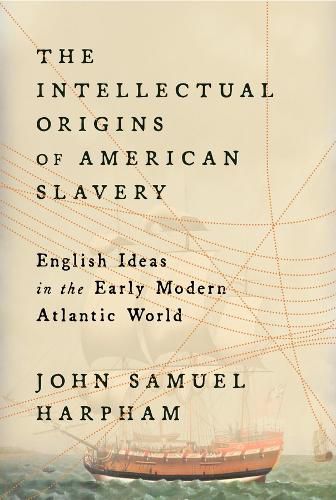Readings Newsletter
Become a Readings Member to make your shopping experience even easier.
Sign in or sign up for free!
You’re not far away from qualifying for FREE standard shipping within Australia
You’ve qualified for FREE standard shipping within Australia
The cart is loading…






A landmark account of the origins of American slavery, revealing how ancient Roman ideas were used to defend the establishment of a slave empire in the English Atlantic world.
The period from 1550 to 1700 was critical in the development of slavery across the English Atlantic world. During this time, English discourse about slavery revolved around one central question: How could free persons be made into slaves? John Samuel Harpham shows that English authors found answers to this question in a tradition of ideas that stretched back to the ancient world, where they were most powerfully expressed in Roman law. These ideas, in turn, became the basis for the earliest defenses of American slavery.
The Roman tradition had located the main source of slavery in war: enslavement was the common fate of captives who otherwise faced execution. In early modern England, this account was incorporated into studies of the common law and influential natural rights theories by the likes of Hugo Grotius and John Locke. When Europeans started to publish firsthand accounts of Africa in the sixteenth century, these reports were thus received into a culture saturated with Roman ideas. Over time, English observers started to assert that the common customs of enslavement among the nations of Africa fit within the Roman model. Englishmen had initially expressed reluctance to take part in the Atlantic slave trade. But once assured that the slave trade could be traced back to customs they understood to be legitimate, they proved keen to profit from it.
An eloquent account of the moral logic that propelled the development of an immoral institution, The Intellectual Origins of American Slavery reveals the power of an overlooked tradition of ideas in the history of human bondage.
$9.00 standard shipping within Australia
FREE standard shipping within Australia for orders over $100.00
Express & International shipping calculated at checkout
A landmark account of the origins of American slavery, revealing how ancient Roman ideas were used to defend the establishment of a slave empire in the English Atlantic world.
The period from 1550 to 1700 was critical in the development of slavery across the English Atlantic world. During this time, English discourse about slavery revolved around one central question: How could free persons be made into slaves? John Samuel Harpham shows that English authors found answers to this question in a tradition of ideas that stretched back to the ancient world, where they were most powerfully expressed in Roman law. These ideas, in turn, became the basis for the earliest defenses of American slavery.
The Roman tradition had located the main source of slavery in war: enslavement was the common fate of captives who otherwise faced execution. In early modern England, this account was incorporated into studies of the common law and influential natural rights theories by the likes of Hugo Grotius and John Locke. When Europeans started to publish firsthand accounts of Africa in the sixteenth century, these reports were thus received into a culture saturated with Roman ideas. Over time, English observers started to assert that the common customs of enslavement among the nations of Africa fit within the Roman model. Englishmen had initially expressed reluctance to take part in the Atlantic slave trade. But once assured that the slave trade could be traced back to customs they understood to be legitimate, they proved keen to profit from it.
An eloquent account of the moral logic that propelled the development of an immoral institution, The Intellectual Origins of American Slavery reveals the power of an overlooked tradition of ideas in the history of human bondage.